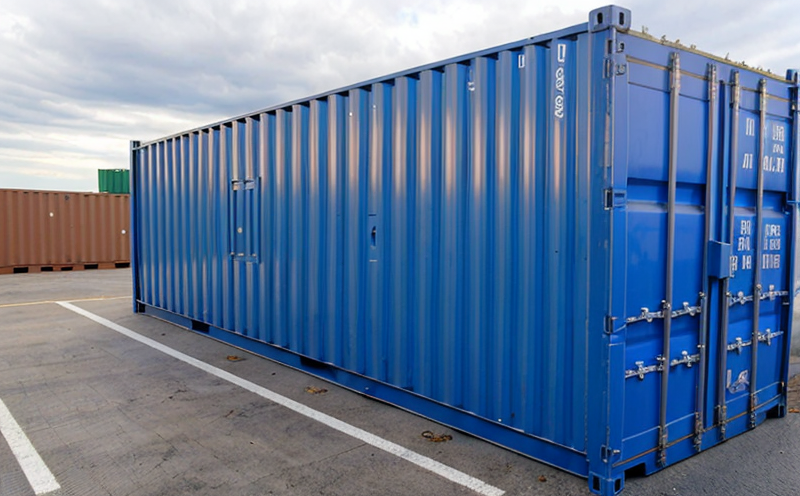ISO 11443 Capillary Rheometer Testing of Plastic Storage Plastics
The ISO 11443 method is a crucial standard for assessing the flow behavior and rheological characteristics of thermoplastic materials. This test, often conducted using capillary rheometers, evaluates how easily a polymer can be extruded or molded under controlled conditions. For plastic storage containers, understanding these properties ensures that the container will perform reliably during its intended use.
The testing procedure involves heating a small amount of the plastic to its melting point and forcing it through a die with precisely defined dimensions. The flow rate is measured as a function of pressure, providing insights into the material's viscosity at various shear rates. This information helps in optimizing processing conditions, ensuring product quality, and meeting regulatory requirements.
Storage containers made from thermoplastics are subjected to this test because their performance can be significantly affected by temperature changes during storage or transport. The rheological properties obtained through ISO 11443 testing help predict the potential for deformation under stress, which is critical for ensuring product integrity and safety.
The capillary rheometer used in these tests provides a non-destructive means of evaluating plastic flow behavior. This method allows for precise measurement without altering the sample's physical properties beyond those induced by temperature and pressure during testing. The results are typically presented as a stress–strain curve, which can be used to model the material's behavior under different processing conditions.
For quality assurance in storage container manufacturing, ISO 11443 tests help identify any inconsistencies in raw materials or process variables that could lead to performance issues. By comparing test results against established standards and historical data, manufacturers can make informed decisions about process adjustments or material substitutions.
The test is particularly useful for identifying the effects of different additives on polymer flow behavior. For example, lubricants or stabilizers may alter a plastic's melt viscosity, impacting its extrusion characteristics. Understanding these changes through ISO 11443 testing ensures that the final product meets both performance and regulatory requirements.
Moreover, this test is beneficial for new material development in storage container design. By simulating real-world processing conditions, manufacturers can optimize formulations to enhance flowability while maintaining structural integrity. This optimization process can lead to more efficient production methods and longer-lasting products.
Eurolab Advantages
- Precision instrumentation tailored for ISO 11443 compliance
- Experienced technical staff with expertise in polymer rheology
- Comprehensive quality control measures to ensure accurate and reliable results
- State-of-the-art facilities supporting multiple testing standards
- Rapid turnaround times for test reports
- Robust data analysis capabilities, including statistical process control
Why Choose This Test
The ISO 11443 capillary rheometer test is essential for several reasons when evaluating the performance of plastic storage containers. First and foremost, it provides a quantitative measure of flow behavior under controlled conditions, which directly impacts how well a container will perform during its lifecycle.
- Ensures consistent quality across production batches
- Aids in optimizing processing parameters for efficient manufacturing
- Predicts potential issues with container integrity and deformation under stress
- Supports compliance with international standards like ISO 11443, ensuring regulatory requirements are met
The precision of the capillary rheometer allows for detailed analysis that can pinpoint specific areas where improvements might be needed. This level of detail is invaluable for quality managers and R&D engineers looking to innovate or refine existing products.
Quality and Reliability Assurance
- The test ensures that storage containers maintain their structural integrity under varying temperature conditions, which is critical for safety and longevity.
- By identifying flow anomalies early in the development process, manufacturers can avoid costly rework or recalls later on.
- Results from ISO 11443 testing are used to establish baseline performance metrics that can be monitored over time to ensure ongoing compliance with standards.
- The data generated by these tests can also inform product lifecycle assessments, helping to extend the useful life of containers and reduce environmental impact.
Additionally, this testing method helps in understanding how different additives affect flow behavior. This knowledge is crucial for optimizing formulations that balance performance with cost-effectiveness. In summary, ISO 11443 capillary rheometer testing plays a pivotal role in ensuring the reliability and quality of plastic storage containers.





